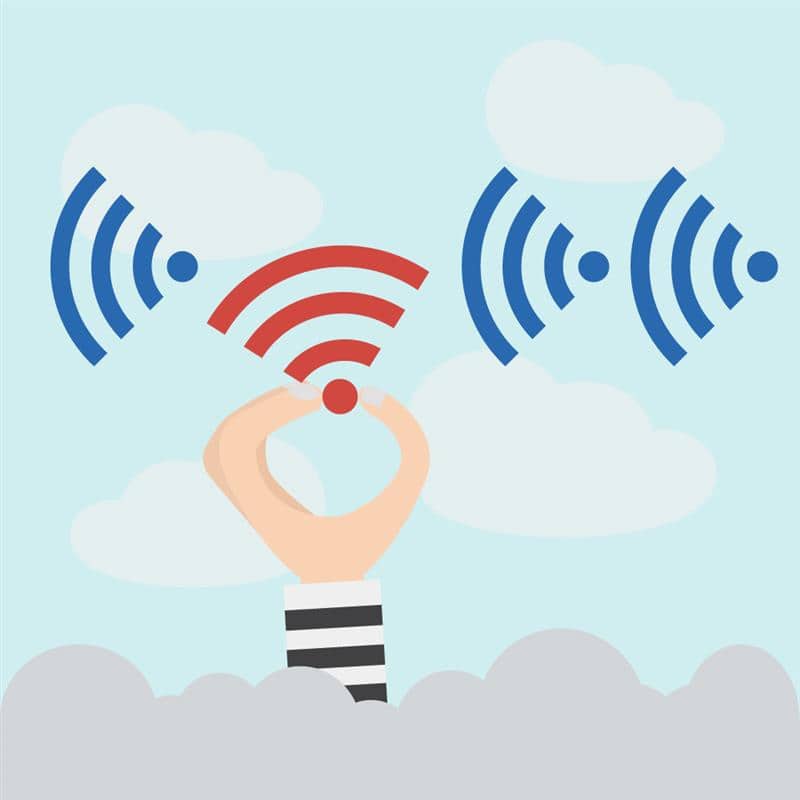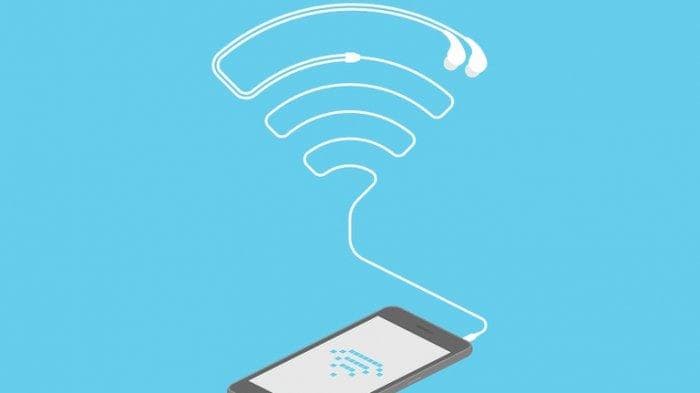Picture this: You’re sipping coffee at your favorite cafe, using the free Wi-Fi to check your crypto wallet. Stop right there. Do you really know the risks? In “Crypto wallet safety 101: Should You Transact on Public Wi-Fi?”, you’ll learn why busting out your digital wallet on a public network might be a move you’ll regret.
Hackers love public Wi-Fi as much as you do, but for all the wrong reasons. They’re waiting to snatch your data out of thin air. I’ll show you how to shield your crypto from prying eyes with simple, powerful steps. Get ready to dive deep into securing your transactions and fighting off cyber thieves with tactics that are easy to apply. Don’t be the next victim of Wi-Fi snooping—read on and lock down your crypto like a pro.
Understanding the Risks of Using Crypto Wallets on Public Wi-Fi
The Dangers of Public Wi-Fi Networks
Public Wi-Fi is a hacker’s playground. Bad folks love free Wi-Fi spots. Why? They can easily peek at your online moves. Imagine you’re playing with your crypto wallet there. It’s like opening your purse in a crowd. Not smart, right? Public networks often lack strong security.

This makes it easy for crooks to grab your data. In shopping malls, cafes, or airports, always think twice. Ask yourself, “Is my crypto safe here?” Most times, public Wi-Fi is not your friend when dealing with digital cash.
How Wi-Fi Sniffing and Signal Interception Affect Your Crypto Assets
Here comes the technical bit – Wi-Fi sniffing and signal interception. These are big words for sneaky techniques. They let hackers see what you send over Wi-Fi. They can snag your wallet’s keys like a pro. Now, with your keys, they own your coins. Ouch! Let’s break it down. You’re on Wi-Fi at your favorite coffee shop. You check your Bitcoin wallet. A hacker nearby might be using special tools. These tools catch data flying through the air. Your wallet’s info could be in their hands now. It’s a scary thought, isn’t it?
Think of your crypto wallet as a vault for your digital money. It needs more than a standard lock. Online wallet security is like having a high-tech vault door. It keeps out anyone who shouldn’t be there. When you’re on a public Wi-Fi, the risks shoot up. A hacker could be watching, waiting to break into your vault.
You’re smart to ask about security for your digital coins. It’s your hard-earned money, after all. Staying off public networks when using your wallet is a good rule. If you must log in, use tools like a VPN first. VPN stands for Virtual Private Network. It hides your steps online, making it harder for bad actors to follow.
Security is a big deal in the crypto world. Hackers have sneaky ways to get what they want. Don’t make it easy for them. Your peace of mind is worth more than a quick Wi-Fi fix. Remember, in the digital world, there’s no such thing as being too careful. Always play it safe, and your digital wallet will thank you.
Enhancing Security for Accessing Crypto Wallets on Unsecured Networks
The Role of VPN in Protecting Your Digital Transactions
Think public Wi-Fi is safe for your crypto wallet? Think again. Public Wi-Fi is a hacker’s playground. But don’t fret. You can shield your wallet with a VPN (Virtual Private Network). A VPN makes your data private with tough encryption. Like whispering in a noisy room, it blocks others from listening.
When you trade Bitcoin on Wi-Fi, use a VPN. It hides your online steps. This keeps your coins far from thieves. Always turn it on before you open your crypto wallet. This is key.
Say you’re at a café, about to check your altcoin balance. Pause. Connect to your VPN first. Only then should you access your wallet. With a VPN, even if someone tries to see your data, they hit a wall.
Implementing Wallet Encryption and Authentication Mechanisms
Your crypto wallet’s defense? Encryption and two-factor authentication (2FA). First, what’s encryption? It jumbles your wallet info so only you can read it. Like a secret code, you need a special key to unlock it.
Strong 2FA is like a double lock on your wallet. It uses a code from your phone or a fingerprint, adding an extra safety step. Even if someone swipes your password, they can’t get into your wallet without this code.
Together, encryption and 2FA keep your wallet secure on public Wi-Fi. Before you log in to your wallet, encrypt it and turn on 2FA. This way, your digital dollars stay snug as a bug.
Don’t store your crypto on online wallets when on Wi-Fi. They’re like candy for hackers. Instead, use wallets that live on your device and keep backup codes safe—not on your phone or computer.
Be smart, be safe. Public networks are tricky, but with the right steps, you can keep your crypto secure. Always use a VPN, encrypt, and lock your wallet with 2FA. Happy and safe trading!
Best Practices for Secure Crypto Transactions Over Wi-Fi
Steps to Ensure Safe Cryptocurrency Transactions
When it comes to using a crypto wallet on public Wi-Fi, safety is paramount. You’re exposed to risks such as Wi-Fi signal interception, also known as Wi-Fi sniffing. This is where nefarious characters monitor and capture data that travels over the network.
To combat this, employing a VPN for your crypto wallet can mask the data you’re sending. It does this by creating a private network within the public one, adding a layer of security to your transactions.
Of course, the VPN isn’t a be-all-end-all solution. Using robust wallet encryption is equally important. This further fortifies your wallet data against potential intrusion.
You’re probably wondering, what about online wallet security? Good question. Think of your online wallet like your real-world one. You wouldn’t just leave it open in a public place, would you? Just as you’d be cautious in the physical world, the same applies in the digital landscape. Besides VPN and encryption measures, using the right authentication mechanisms can not only prevent unauthorized access but can also alert you should someone try.
Hand in hand with wallet encryption is employing a two-factor authentication (2FA) process. This double-check system requires more than your password to gain access, often sending a unique code to a device only you possess.
The digital wallet, however, is susceptible to vulnerabilities in an unsecured network. We all love free Wi-fi, but remember these networks are not always secure. It’s prudent to avoid transacting large amounts if you are not in a secure network. Always opt for Wi-Fi networks that require a password as they offer a layer of protection over open networks.
The Importance of Decentralised Wallet Security and Private Key Management
Inputting your private key on a public network presents its own set of dangers. To ensure your cryptocurrency is not susceptible to hacking, consider decentralised wallet security. Here, you, the wallet owner, hold onto your keys as opposed to having a third party hold them. You are in control and should therefore ensure you protect your keys.
You’re thinking, how can I ensure data privacy in my crypto transactions? By keeping your private key a “secret.” Should it fall into the wrong hands, your entire wallet and its contents can be compromised. As such, sound management of private keys is vital.
The use of hardware wallets presents an option to store your private keys off an internet-connected device, thus minimizing potential malware threats to your crypto wallet. This practice is referred to as cold storage. Such a device adds an extra level of security by requiring biometric authentication, be it fingerprint or retina scan, to access your wallet.
In conclusion, using a crypto wallet on public Wi-Fi can pose some risk. However, with the right protective measures such as usage of a VPN or wallet encryption, as well as secure authentication procedures, you can ensure safer transactions. Remember, your ultimate line of defense is vigilance and proactive management of your digital assets-security begins with you!
Beyond Public Networks: Long-term Strategies for Crypto Wallet Safety
Cold Storage Solutions for Enhancing Cryptocurrency Security
Cold storage is vital for crypto wallet safety. It keeps your coins offline, away from hackers. Imagine cold storage like a safe for your digital money. But not just any safe—one that isn’t connected to an unsecured network, where thieves lurk.
Think of your crypto wallet on a public Wi-Fi as a house with open doors. Anyone can sneak in. Now, cold storage? That’s a house in a guarded fortress.
Use hardware wallets for cold storage. They are like USB drives that hold your cryptocurrency safely. With them, accessing your crypto just to check your balance isn’t exposing you to risk, as these devices do not need to connect to the internet for that. When you do want to move your assets, you briefly connect, make the transfer, and then go offline again—swift and secure!
Regular Security Measures to Counter Malware and Spyware Threats
Malware and spyware are like the flu. They can spread through Wi-Fi and infect your crypto wallet, sneaking in through unsecured networks. Be careful when using crypto wallet on public Wi-Fi.
Start with the basics: Keep your software updated. Updates often have fixes for security holes that malware could sneak through. Use strong, unique passwords for every wallet. And yes, that means no “1234” or your dog’s name—make them tough to guess!
Enable two-factor authentication too. It’s like a double lock on your crypto wallet. Even if someone knows your password, they can’t get in without this second key.
Finally, be smart about public Wi-Fi security. Don’t access your wallet on public networks. If you must, use a VPN. It’s like putting your data in a special armored car. It travels hidden from any bad guys looking to snoop.
There’s never too much when it comes to securing what’s yours, especially when dealing with cryptocurrency security measures. Regularly clean your device with anti-spyware tools to be even safer.
In blockchain security, learning and staying up to date are your best tools. Combine them with these proactive steps, and you can keep your digital treasure away from digital pirates. Remember to always prioritize your digital wallet vulnerability. It’s better to be overly cautious than to regret a preventable mistake. Cold storage and regular security measures are non-negotiable for peace of mind.
We’ve learned how risky public Wi-Fi can be for your crypto wallets, especially with Wi-Fi sniffing and signal interception. But don’t worry, you can boost your safety. Use a VPN to shield your data and add extra layers of encryption to your wallet.
You also know the best practices for dealing with crypto over Wi-Fi now. Remember to always follow safe steps for your transactions and manage your private keys well. It’s super important!
And finally, for the long haul, consider cold storage to keep your crypto secure. Also, keep up with regular checks to fight off malware and spyware. Stay safe out there!
Follow Crypto Currency Bitcoin to update more knowledge about Crypto.
Q&A :
1. Is it safe to use a crypto wallet on public Wi-Fi?
Public Wi-Fi networks can often be insecure, leaving your devices and information at risk of being accessed by malicious parties. Therefore, it is typically not recommended to conduct sensitive operations, such as accessing your crypto wallet, over a public Wi-Fi network. You are strongly advised to ensure a secure and private connection, for example by using a VPN or mobile data, before accessing your cryptocurrency wallets.
2. How can I protect my crypto wallet when using public Wi-Fi?
Should you find yourself needing to access your crypto wallet on public Wi-Fi, consider following some precautions. Use a trusted VPN to encrypt your internet connection, enabling a secure communication channel. In addition, enable two-factor authentication (2FA) on your crypto wallet. This adds an extra layer of security, making it more difficult for unwanted parties to gain access.
3. What are the risks of using a crypto wallet on public Wi-Fi?
Engaging in financial transactions using a crypto wallet on a public Wi-Fi can expose you to several incidents. Your login information can be intercepted by cybercriminals, your device can get infected with malware, or you may even become a victim of a phishing attack. The potential damage can be considerable, possibly leading to a total loss of your cryptocurrencies.
4. Can my crypto wallet be hacked when using public Wi-Fi?
Yes, using a crypto wallet on public Wi-Fi can potentially expose it to hackers. Public Wi-Fi networks can be easily exploited, allowing hackers to intercept your data and gain access to your wallet. Therefore, it’s crucial to take preventative measures such as using a VPN and enabling 2FA.
5. Are there any secure crypto wallets recommended for public Wi-Fi use?
While many crypto wallets market their security features, it’s important to remember that the most vulnerable point often lies in the user’s internet connection. Crypto wallets like Ledger Nano X or Trezor employ advanced security measures to protect against attacks, but the security can still be compromised on public Wi-Fi. Hence, always use a secure connection regardless of the wallet’s internal security features.
